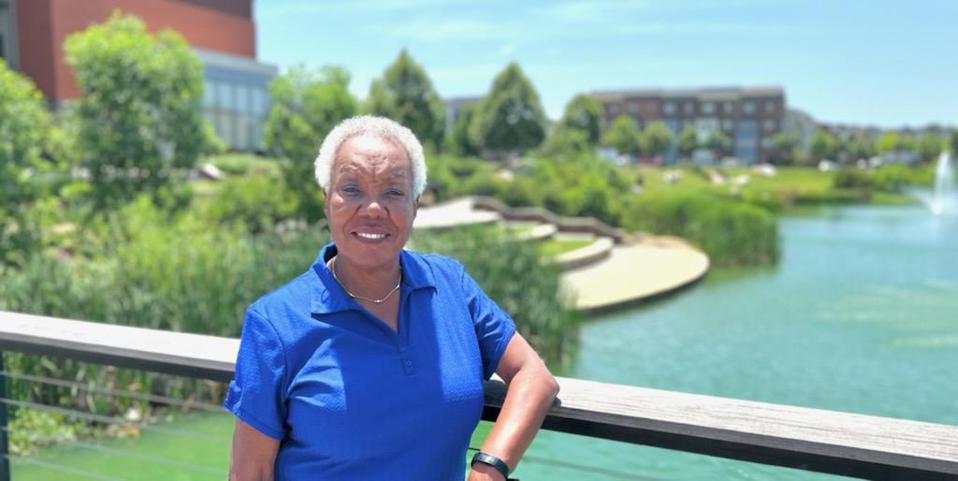
First Black Woman to Earn a Harvard MBA Paves Path for Underrepresented Communities
By Cheryl Robinson
The 1960s were a critical moment in United States history; whether living through it or reading about it, there’s no doubt that decade accelerated the civil rights movement, laying the foundation for where we are today. The first of anything monumental is challenging. Individuals that lead the way aren’t solely doing it for themselves; they are doing it for future generations.
Lillian Lincoln Lambert, an entrepreneur and the first Black woman to earn an MBA from Harvard in 1969, created a path for other Black women to excel and positively impact their communities. Her career as an entrepreneur in the building maintenance industry continued to push boundaries for both women and underrepresented communities in a male-dominated field. She grew her company to $20 million in the 1980s and 1990s, employing over 1,200 individuals in six states before selling it. Over five decades after leaving the Harvard halls, Lambert wrote a book and is enjoying speaking around the country about her experience and helping others in their journey.
“I had no idea what to expect when I got there [Harvard],” Lambert shared. “That first day, I was the first person to get to the dorm. I got there early and was greeted by this older lady who told me, ‘The dorm isn’t ready. Won’t be ready for a couple of hours. You can put your bags here and go sit in the park.’ So that’s what I did. While sitting there, I was thinking, ‘What have I gotten myself into?’ I just wanted to go back, get my suitcase and go back home. I didn’t want to be there. But then I started thinking about all the people that supported me to get there. I had been excited about being there. They were excited about me being there. Something said. ‘You’ve got a responsibility to stay here and see this through.’ So I went back to the dorm and checked in.”
Lambert attended Howard University for her undergraduate degree, where she met professor H. Naylor Fitzhugh, one of the first Black men to graduate from Harvard Business School (HBS). He took her under his wing and asked if she had thought about applying to graduate school, specifically Harvard. It had only been a couple of years at that point since HBS opened its doors to women.
She hadn’t thought about it but applied with her professor’s encouragement. To her dismay, she received a rejection letter, which only fueled her desire to prove that she was Harvard material. She studied rigorously for the entrance exam and finally was accepted. With a year layover before her cohort started, Lambert worked at the Washington Post as a secretary to the assistant managing editor. Then, in the fall of 1967, Lambert made history.
“I didn’t know that [I was the first Black woman] till after I graduated,” she humbly states. “I think professor Fitzhugh probably knew, but he didn’t tell me, which was probably a good idea because I’m not sure I would have gone. I think he felt that I had the capability to deal with whatever I might face once I got there.”
Lambert faced many challenges; mostly, she felt invisible. In her first year, out of the entire student population, there were only nine Black students. In 1968, she and her three fellow Black classmates formed the African-American Student Union. The Union addressed the challenges they experienced in the classroom and issues faced by African Americans throughout the United States at that time. For over 50 years, it has raised financial support for students and increased Black enrollment in the MBA program.
That experience developed Lambert’s resilience even further. After Harvard, with no career prospects in sight, she transitioned through six different jobs before working in the building maintenance industry. It wasn’t until a friend asked if she had thought about opening a company that she considered starting her own agency in the industry. At the time, no other woman had done such a thing.
She filed for her corporation and planned on doing it part-time after work, signing with corporations that weren’t already clients of her boss. He first said it was fine, only to then fire her. Lambert left in May, setting a deadline of September 30 to make the company work. If it didn’t, she would look for another job. Understanding the value of being listed as a government contractor, she applied for the 8(a) program, which was set up to get minorities involved in competing for government contracts.
“I was a double minority,” Lambert states. “I’m Black and a female. So I’m thinking I was a shoo-in. I submitted my application and got turned down. The reason they turned me down, they say, was because they could not guarantee that they could get me the contracts.”
Having worked for her former employer for three years, she knew that the government doesn’t supply contracts. A company has to go out and secure its own. Then the company has to present it to the Small Business Administration, showing interest in their business. Lambert was able to secure a contract at the end of September, right before her deadline. From that, she grew her company.
Lambert focused on the following essential steps while pivoting in her career:
- Learn as much as you can. The better prepared you are, the more leverage you’ll have in negotiations.
- Create a blueprint of your goal. This will help you focus and create a manageable strategy.
- Don’t let fear paralyze you from going after what you want.
“Women need to not be afraid to step out and allow themselves to make mistakes,” Lambert concludes. “Don’t be intimidated by men or people that think they’re smarter than you. Most of the time, they’re not as smart as they think they are.”
Photo Source: Lillian Lincoln Lambert




